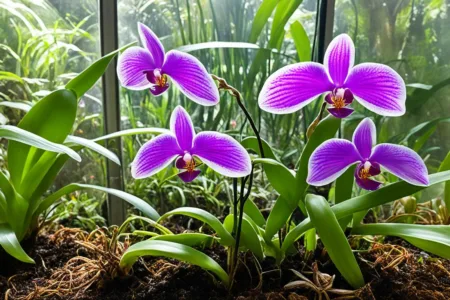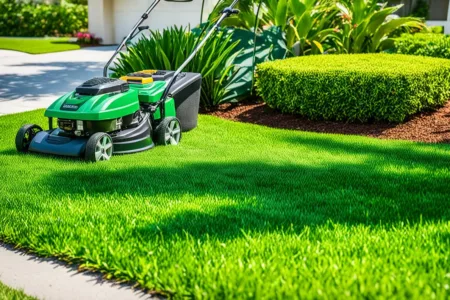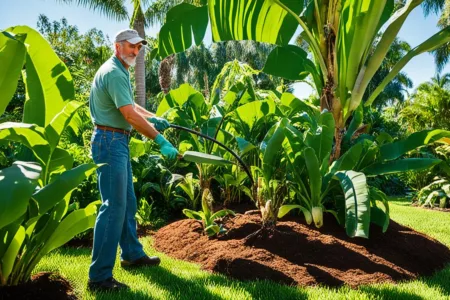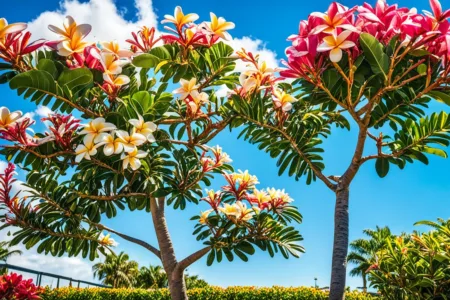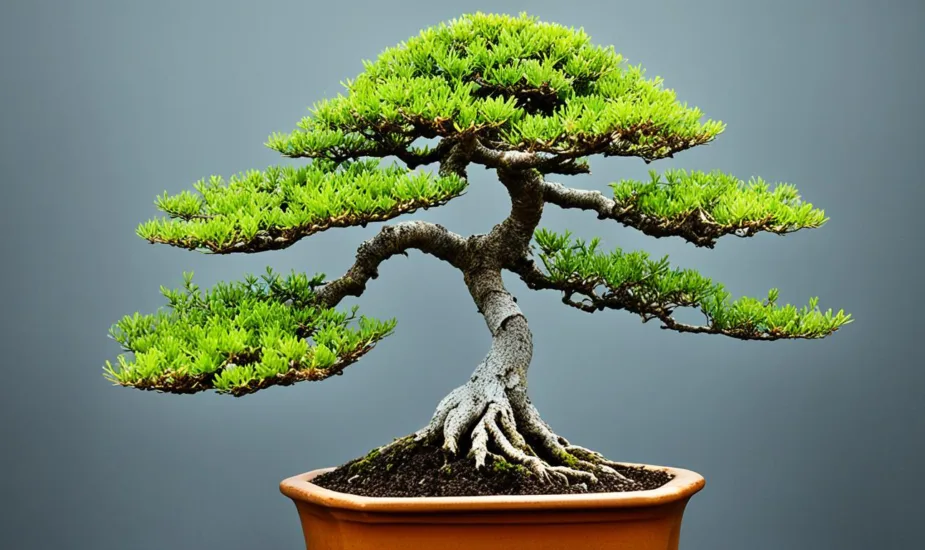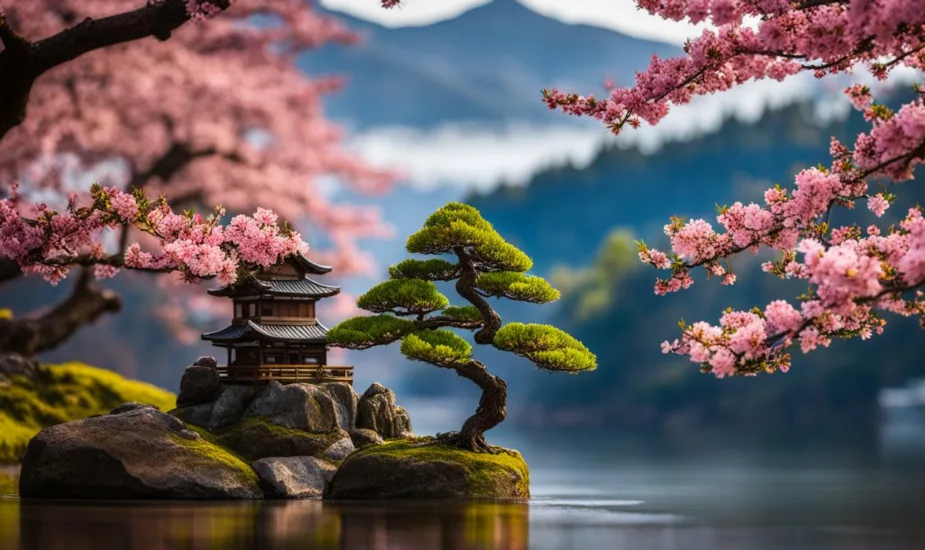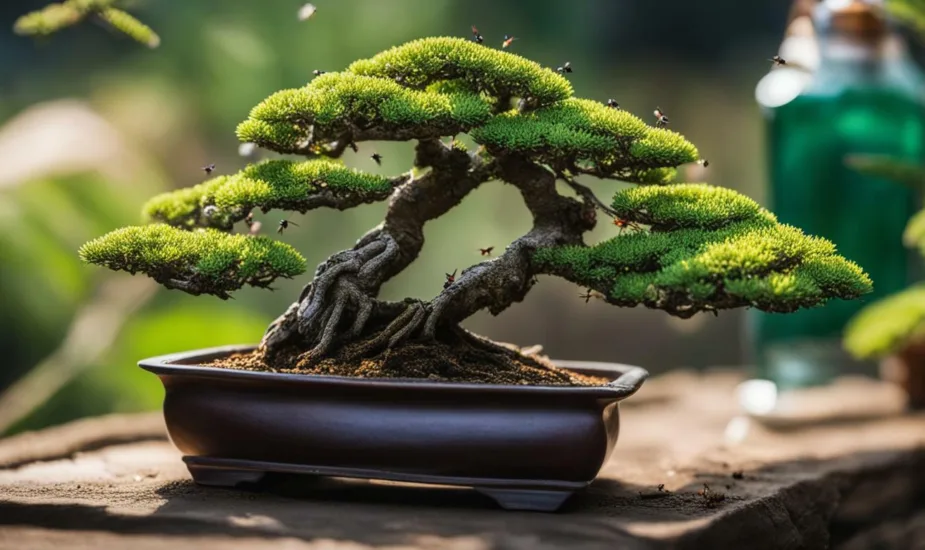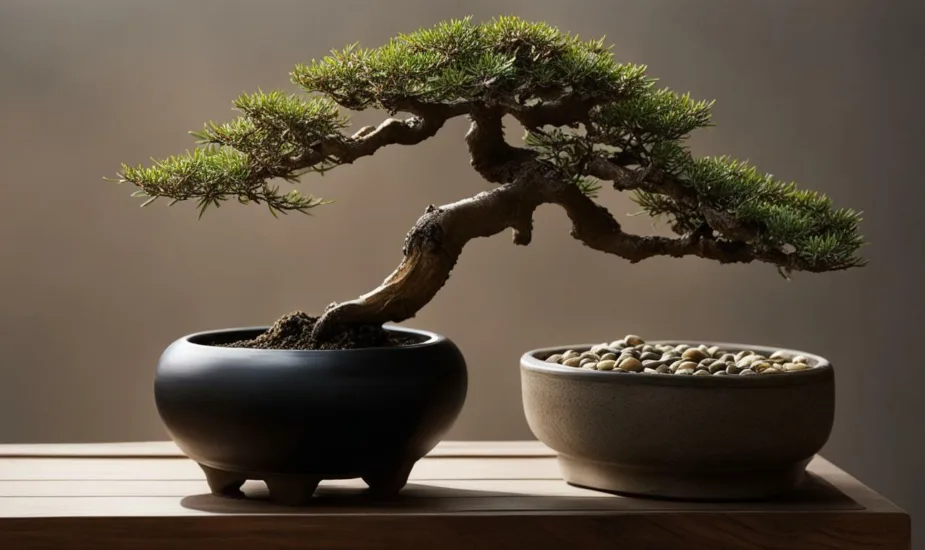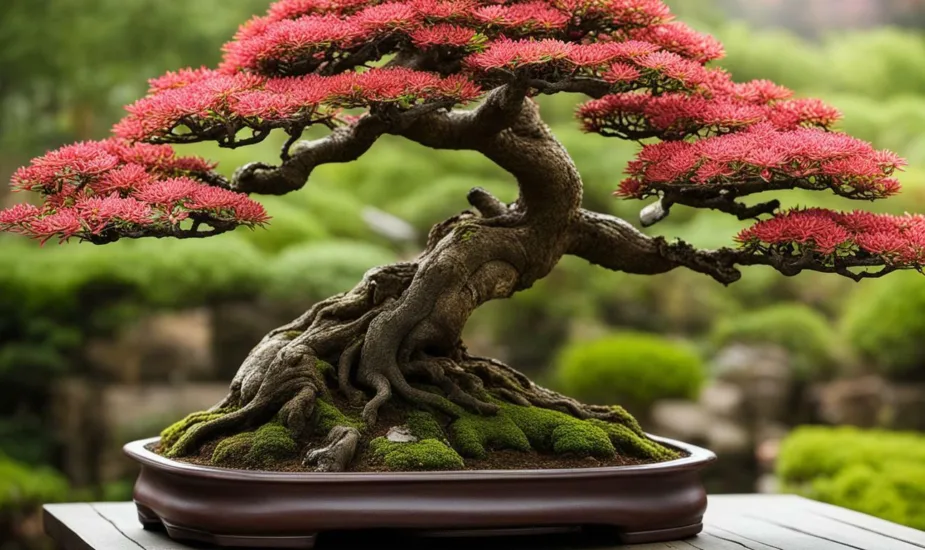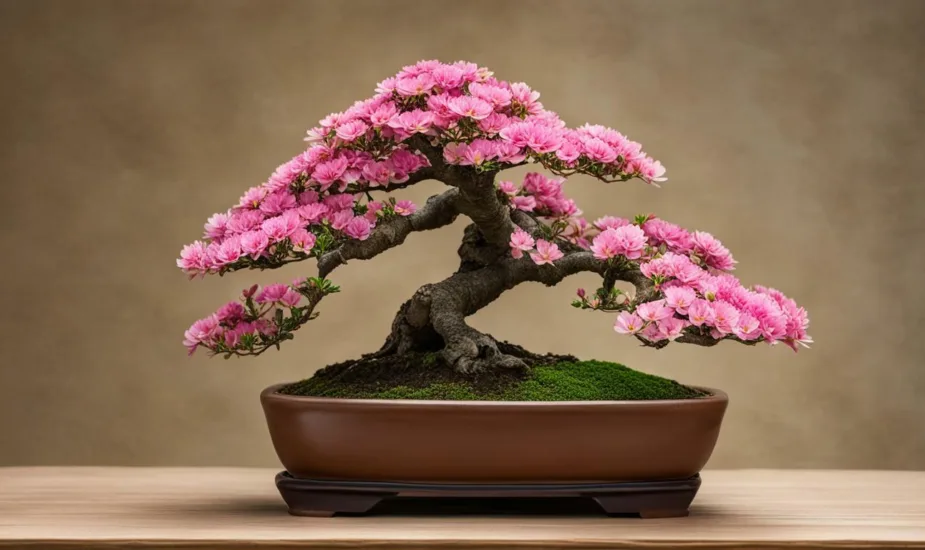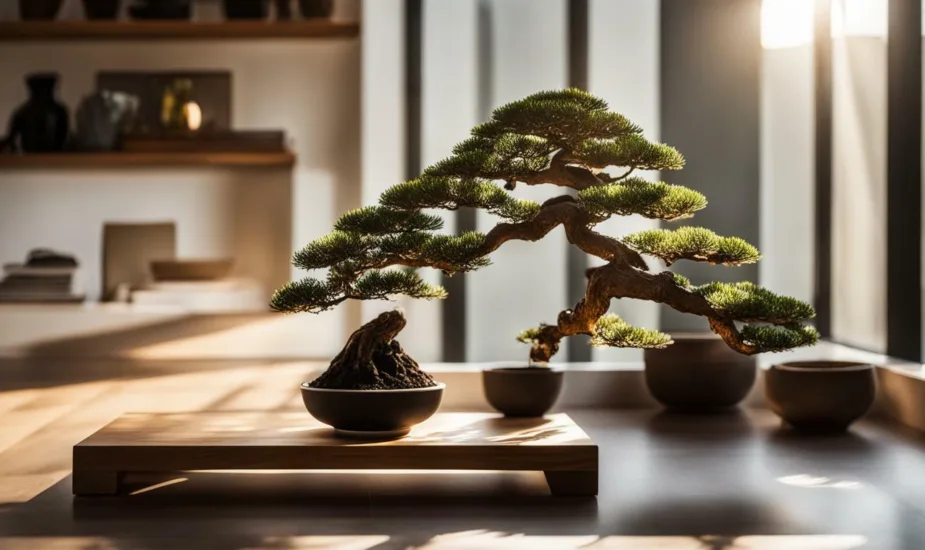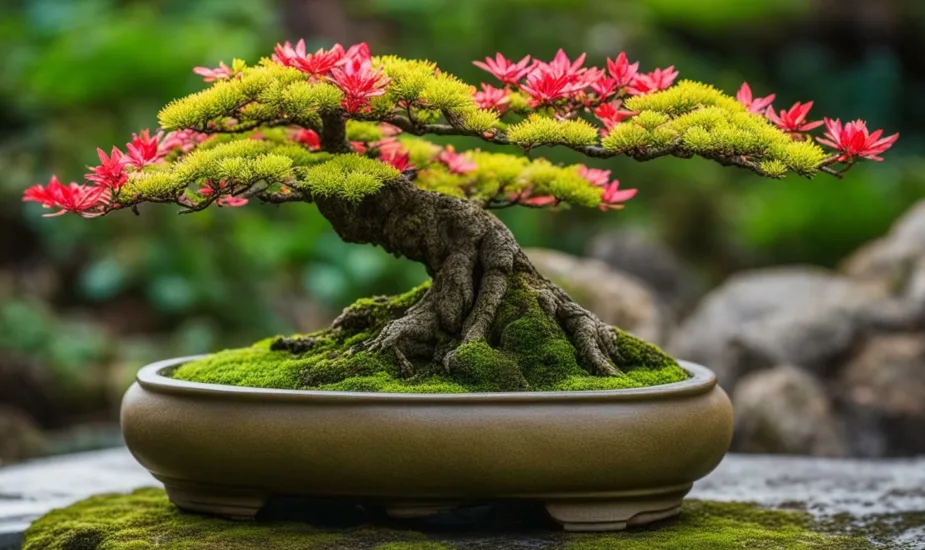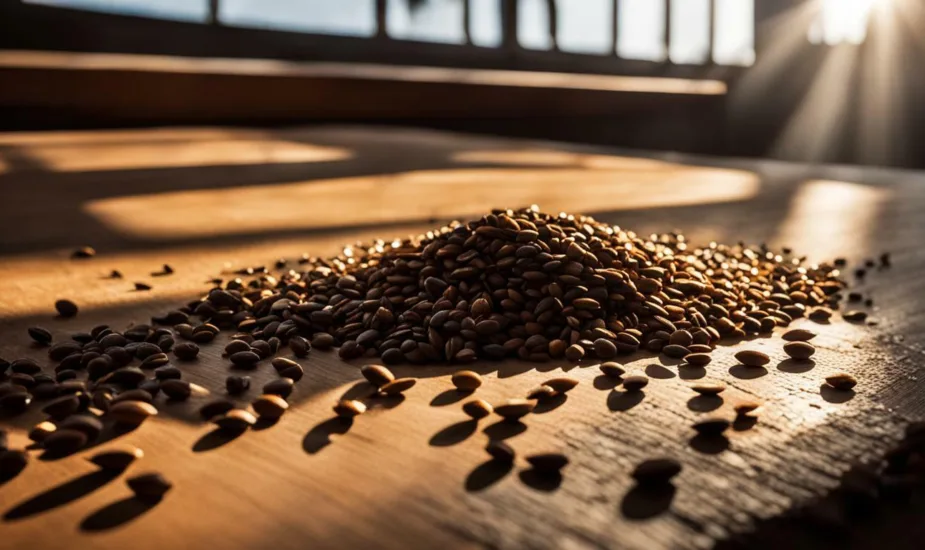Do Bonsai Trees Need Fertilizer? Unlocking Plant Care Secrets
As a bonsai tree enthusiast, it's important to understand the significance of fertilizer in maintaining the health and growth of your miniature tree.
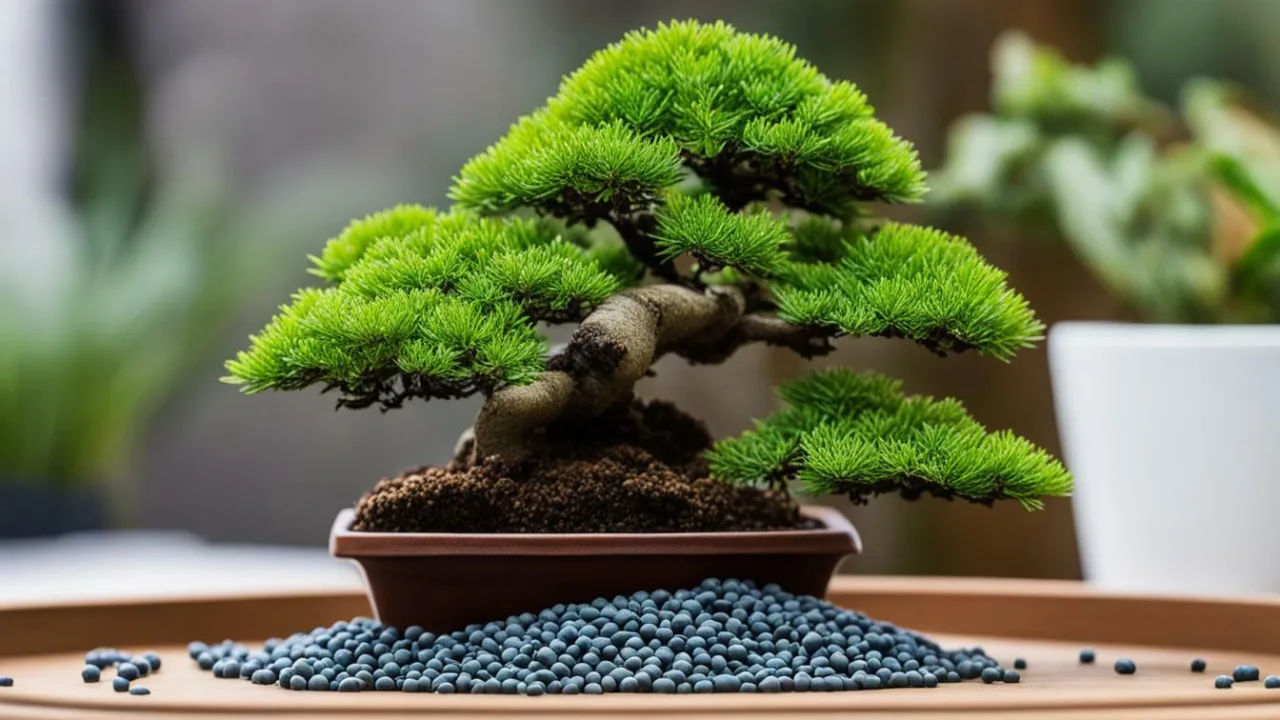
Bonsai trees require fertilizer to provide the necessary minerals and nutrients they need for balanced growth and photosynthesis. By ensuring regular fertilization, you can ensure that your bonsai tree receives the vital nutrients it requires to thrive.
Key Takeaways:
- Fertilizer is essential for maintaining the health and growth of bonsai trees.
- Bonsai trees require a balanced mix of macronutrients and micronutrients.
- Organic and inorganic fertilizers both have their benefits and considerations.
- Fertilizer should be applied at the right frequency and amount.
- Proper bonsai care involves watering, adequate light, overwintering, and repotting.
There are two types of fertilizers that can be used for bonsai trees: organic and inorganic. Organic fertilizers, derived from natural sources such as compost tea and fish emulsion, are not only safe for the environment but also help improve soil fertility over time. Inorganic fertilizers, on the other hand, provide quick-release nutrients but require careful application to avoid root burn.
To meet the nutrient requirements of bonsai trees, it’s important to understand the specific needs of your tree’s species. Bonsai trees need macronutrients like nitrogen, phosphorus, and potassium, as well as micronutrients such as iron, zinc, and manganese. These nutrients should be applied in the correct proportions based on the species and requirements of your bonsai tree.
Fertilizer should be applied at the right frequency and amount. For organic fertilizers, it’s generally recommended to fertilize every two weeks, while inorganic fertilizers can be applied less frequently. The best time to apply fertilizer is during active growth periods in spring and summer, when your bonsai tree will benefit most from the additional nutrients.
In addition to fertilizing, proper bonsai care includes adequate watering, placing the tree in a bright location, overwintering, and repotting as needed. It’s crucial to provide your bonsai tree with adequate light, as this will directly impact its growth. Watering and fertilizing guidelines should be adjusted based on the specific species and winter hardiness of your bonsai tree. Repotting should be done every few years to maintain proper soil drainage and prevent compaction.
Choosing the Right Fertilizer for Bonsai Trees: Tips and Guidelines
When it comes to fertilizing your bonsai tree, choosing the right type of fertilizer is crucial for providing the necessary nutrients. Bonsai trees require a balanced mix of macronutrients and micronutrients to thrive and maintain their health. There are two main types of fertilizers to consider: organic and inorganic.
Organic fertilizers, such as compost tea and fish emulsion, are derived from natural sources and offer several benefits. They are safe for the environment and promote long-term soil health. Organic fertilizers release nutrients slowly, providing a steady supply of nourishment to the bonsai tree over time. They are perfect for those who prefer a more natural approach to plant care.
Organic fertilizers, such as compost tea and fish emulsion, are derived from natural sources and are safe for the environment.
Inorganic fertilizers, on the other hand, provide quick-release nutrients and are often available in granular or liquid form. Chemical fertilizers and slow-release fertilizers fall into this category. While inorganic fertilizers can offer rapid results, they require careful application to avoid root burn. They should be used sparingly and in accordance with the manufacturer’s instructions.
When selecting a fertilizer, it’s essential to consider the specific nutrient requirements of your bonsai tree species. Different trees have different needs, and the proportions of macronutrients (nitrogen, phosphorus, and potassium) and micronutrients (iron, zinc, and manganese) should be adjusted accordingly. Consulting a bonsai expert or referencing a specialized guide can be helpful in determining the appropriate nourishment for your tree.
Table 1: Comparison of Organic and Inorganic Fertilizers
| Type of Fertilizer | Benefits | Considerations |
|---|---|---|
| Organic Fertilizer | Derived from natural sources; safe for the environment; promotes soil health | Slow-release nutrients; may require longer to see results |
| Inorganic Fertilizer | Quick-release nutrients; available in various forms | Potential for root burn if not applied correctly; careful application required |
Remember, the frequency and amount of fertilizer application will also vary based on the type of fertilizer chosen. Organic fertilizers generally require more frequent application, about every two weeks, while inorganic fertilizers can be applied less frequently. It’s important to follow the recommended guidelines to avoid over- or under-fertilizing your bonsai tree.
By choosing the right fertilizer and adhering to proper fertilization practices, you can provide your bonsai tree with the essential nutrients it needs to flourish. Coupled with other care practices like watering, location, overwintering, and repotting, proper fertilization is a vital aspect of bonsai tree care and maintenance.
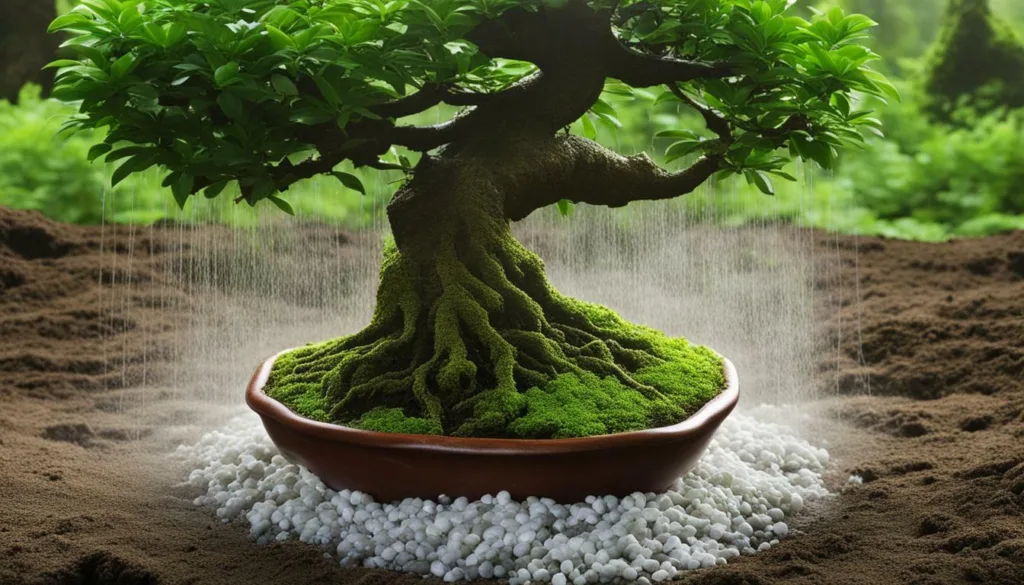
Conclusion
Taking proper care of your bonsai tree, including regular fertilization, is essential to ensure its long-term health and beauty. Fertilizer plays a crucial role in providing the necessary nutrients for bonsai trees to thrive. It supplies macronutrients like nitrogen, phosphorus, and potassium, as well as micronutrients such as iron, zinc, and manganese. These nutrients are vital for the growth and photosynthesis of bonsai trees, helping them maintain a balanced and vibrant appearance.
There are two main types of fertilizers available for bonsai trees: organic and inorganic. Organic fertilizers, derived from natural sources like compost tea and fish emulsion, offer a safe and environmentally friendly option. They provide slow-release nutrients and help improve the overall soil quality. On the other hand, inorganic fertilizers, including chemical fertilizers and slow-release fertilizers, offer quick-release nutrients but require careful application to avoid root burn.
When it comes to fertilizing bonsai trees, it’s important to consider the specific nutrient requirements of your tree species. Different bonsai trees have varying needs, and it’s essential to provide the right balance of macronutrients and micronutrients in accordance with their requirements. Organic fertilizers should typically be applied every two weeks, while inorganic fertilizers can be applied less frequently. The best time to apply fertilizer is during the active growth periods in spring and summer, when the tree can efficiently absorb the nutrients.
In addition to regular fertilization, proper bonsai care includes other crucial factors like watering, location, overwintering, and repotting. Adequate light is vital for bonsai trees, and they should be placed in a bright location that provides sufficient sunlight. Watering and fertilizing guidelines should be adjusted based on the specific species and winter hardiness of the bonsai. Repotting should be done every few years to prevent the soil from becoming compacted and to ensure proper drainage. By understanding and implementing these bonsai care secrets, you can ensure the overall health and growth of your bonsai tree.
FAQ
Do bonsai trees need fertilizer?
Yes, bonsai trees require fertilizer to maintain their health and balance of nutrients.
What nutrients does fertilizer provide to bonsai trees?
Fertilizer provides necessary minerals like nitrogen, phosphorus, potassium, as well as micronutrients.
What are the types of fertilizers available for bonsai trees?
There are two types of fertilizers: organic and inorganic.
What are organic fertilizers and how are they derived?
Organic fertilizers, such as compost tea and fish emulsion, are derived from natural sources and are safe for the environment.
What are inorganic fertilizers and how do they provide nutrients?
Inorganic fertilizers, such as chemical fertilizers and slow-release fertilizers, provide quick-release nutrients but require careful application to avoid root burn.
What are the nutrient requirements of bonsai trees?
Bonsai trees need macronutrients (nitrogen, phosphorus, potassium) and micronutrients (iron, zinc, manganese) in the correct proportions based on their specific species and requirements.
How often should I fertilize my bonsai tree?
Fertilizer should be applied at the right frequency and amount, typically every two weeks for organic fertilizers and less frequently for inorganic fertilizers.
When is the best time to apply fertilizer to bonsai trees?
The best time to apply fertilizer is during active growth periods in spring and summer.
What other care practices should I consider for my bonsai tree?
Bonsai care also includes proper watering, location, overwintering, and repotting.
How can I ensure adequate light for my bonsai tree?
Adequate light is crucial for bonsai trees, and they should be placed in a bright location.
How often should I repot my bonsai tree?
Repotting should be done every few years to prevent compacted soil and provide proper drainage.
 Little Garden Tips
Little Garden Tips
